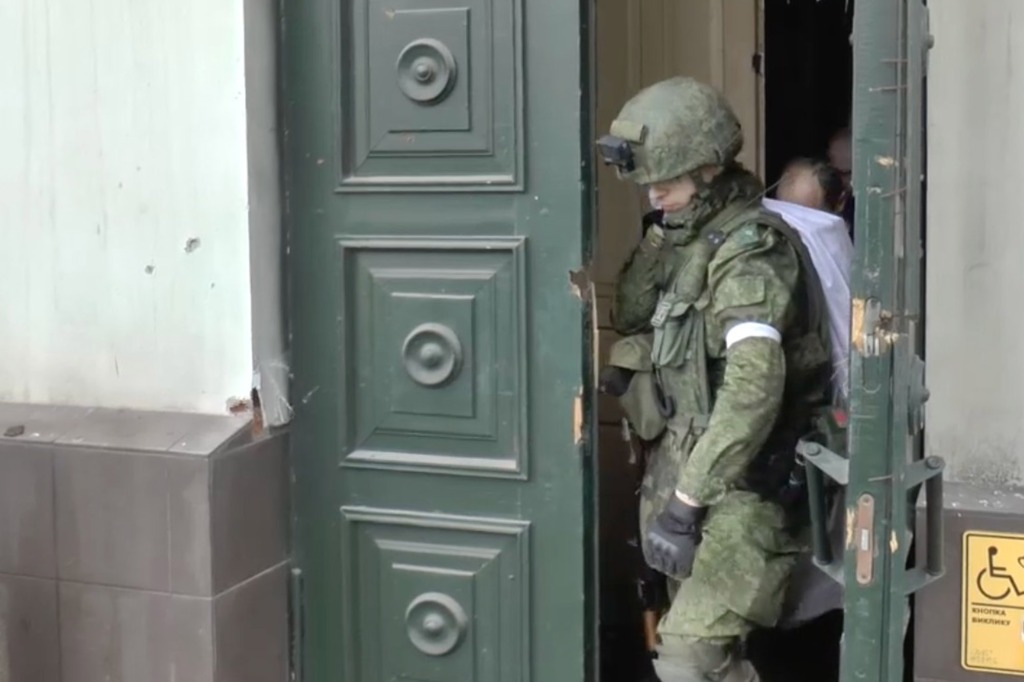Russian art curators have raided dozens of Ukraine museums
Russian art curators have reportedly led raids on approximately 30 Ukrainian museums since last years invasion, guiding the pilfering of ancient artifacts from the war-torn country.
Across Ukraine, museums have been looted of their famed Scythian artifacts, which were left behind when the Eastern Iranian nomadic people migrated from Central Asia to modern-day Ukraine and Southern Russia between the 7th and 3rd century BC, according to the Sunday Times of London.
The raids have reportedly led to the theft of Scythian ornaments, sculptures, paintings, icons and busts worth millions.
“The orders are coming from someone pretty high up in the Kremlin,” said Sir Antony Beevor, the historian and author of “Russia: Revolution and Civil War” told the Sunday Times. “Putin’s propaganda is that Ukraine as a country doesn’t exist, it’s part of Russia — so they can grab anything they want.”
Others see the raids as a way for Russia to wipe out Ukraine’s cultural identity.
“It’s a deliberate policy to destroy the historical memory of the Ukrainian people,” said Alexsandr Symonenko, a Ukrainian archaeologist and Scythian specialist at Ukraine’s National Academy of Sciences.
The first raid came last March, shortly after Russia’s invasion, when a curator was kidnapped and thousands of pieces of artwork were stolen during the occupation of Mariupol and Melitopol.

Russian troops stole nearly 200 items from the Museum of Local Lore in Melitopol, including multiple 2,300-year-old gold pieces from the Scythian empire, according to the Museums Association.
The objects were reportedly selected by a man in a white coat who broke into the basement of the museum with Russian soldiers and selected what to steal with “long tweezers and special gloves,” said Leila Ibrahimova, the caretaker of the museum.
The largest Russian art heist targeted the Kherson Regional Art Museum where five trucks were used to steal over 15,000 pieces of artwork.

One canvas was too large to take, so it was left at the door, and an ancient cannon was also left behind because it was too heavy to move.
“It felt like I was losing my mind, that I was in a bad dream,” said the museum director, Alina Dotsenko. “It was terribly painful to see it so empty, this museum that was my pride, my love, my life.”
Read the full article Here


